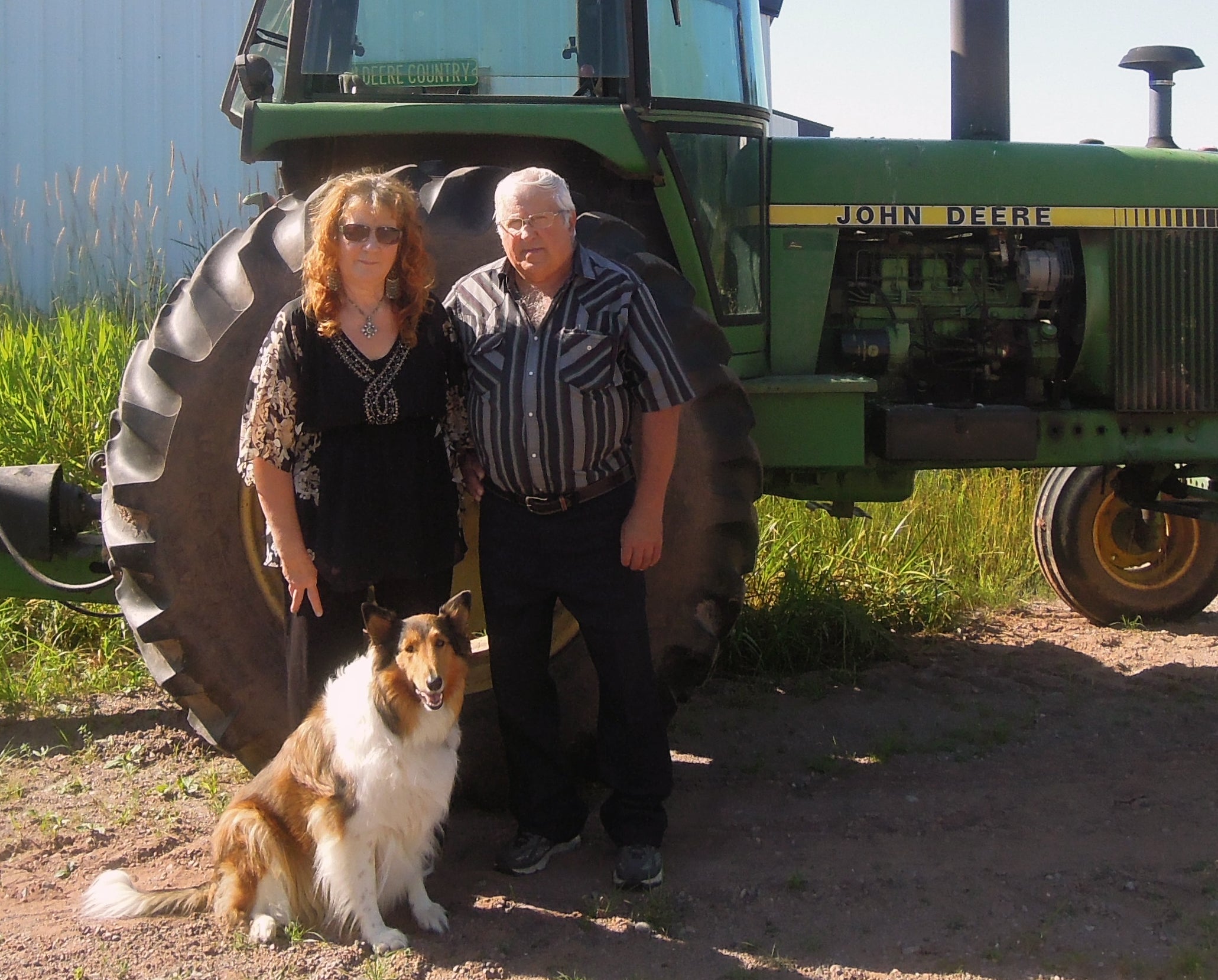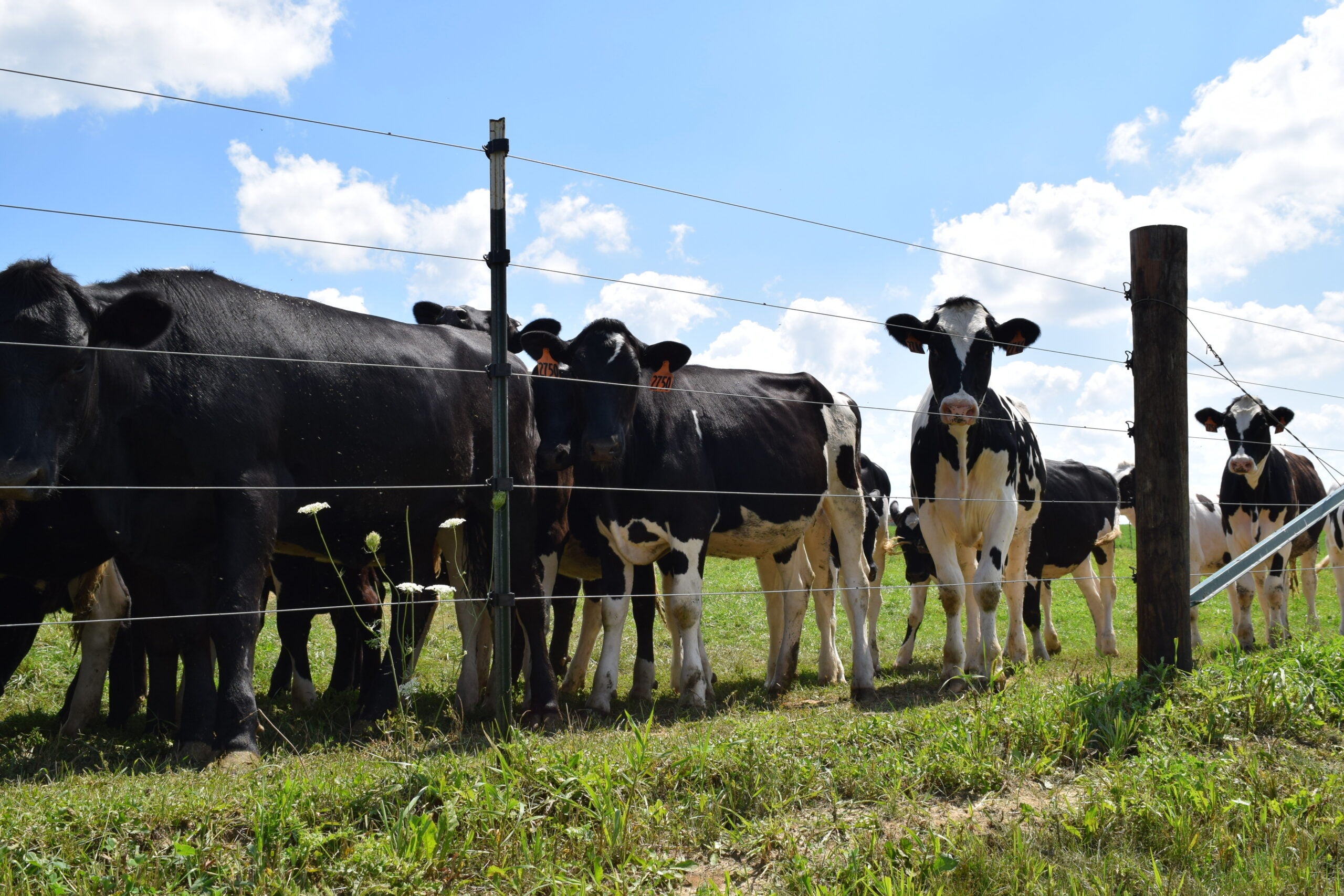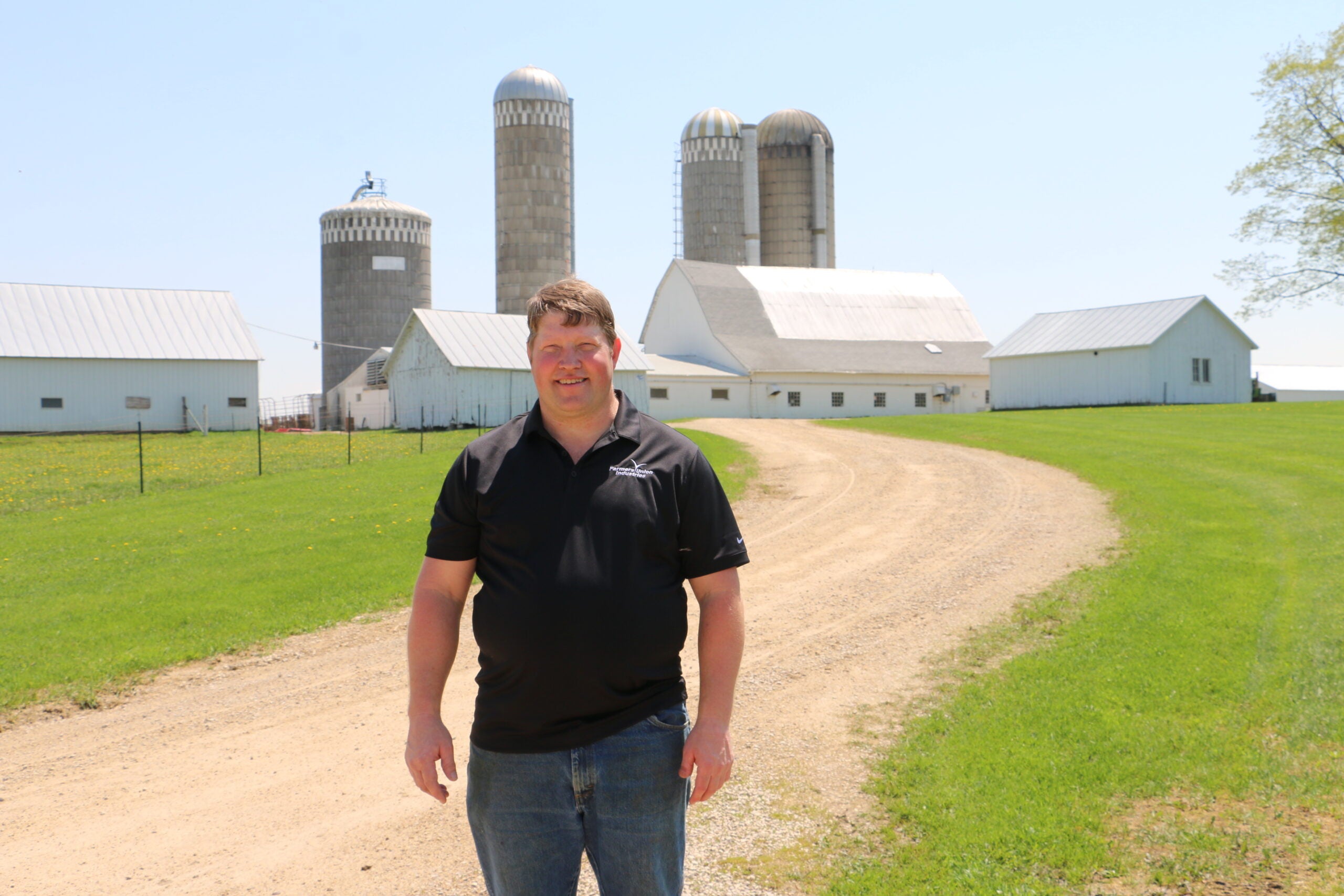More than 1,300 farms lined the landscape of Ashland and Bayfield counties in the early 1960s. Now, fewer than half that remain. In the last two decades alone, the number of dairy farms in the two counties has dropped by nearly 75 percent, according to national agriculture statistics.
As the region is poised to become home to the largest hog farm ever built in the state, farmers disagree on what the development would mean for their future.
Bill Marincel’s family has been farming in Bayfield County for more than a century. His grandfather founded the family farm in 1911, and Marincel has been running it since he purchased from his parents in the mid-1980s. But, Marincel sold his herd last April.
News with a little more humanity
WPR’s “Wisconsin Today” newsletter keeps you connected to the state you love without feeling overwhelmed. No paywall. No agenda. No corporate filter.
“Started out we could afford to raise a family with 44 cows and my wife didn’t have to work, but now, it’s to the point where we’re milking 60 cows. We’re doing custom work. She’s got a full-time job off the farm,” Marincel said. “The money just isn’t there. It’s not profitable.”
Iowa-based Reicks View Farms submitted plans to build a so-called concentrated animal feeding operation for around 26,000 hogs near Marincel’s farm last year. He said the way that farming has changed is one reason he’d like to see the state sign off on the company’s plans.
“It’d help the farm economy around here tremendously … We could grow grains and hay — whatever,” Marincel said. “Pigs don’t eat hay, of course, but there would be a viable place to go with our products so we could continue to live off our land a little longer.”
Retired farmer Bill Franzel, also from Bayfield County, had been renting out his land, but he sold it to another farmer last year. The land that he owned is now slated to be used by Reicks for spreading manure. Franzel doesn’t support the hog farm, but he said many farmers in the area have been forced to rent or sell.
“All the farmers are getting old, can’t go no more … People like to keep it. That’s their home. That’s where they lived all their life,” he said. “They don’t want to leave.”
Benoit’s Bill Hecimovich is in the process of turning over his 60-head dairy to his son. He supports the hog farm as long as it meets all federal, state and local standards. He said he worries about more regulation.
“Government control is OK to a certain extent, but it’s getting out of whack now,” he said, noting restrictions on farming make it more difficult to operate. That’s especially challenging, Hecimovich said, if farmers have to absorb the cost of increased regulation.
But, Carrie Linder would like to see Bayfield County consider more oversight for large farms like Reicks. She and her husband raise sheep and chickens within two miles of the proposed hog farm. Linder said the region’s soil and climate make it challenging to prevent runoff into surrounding waters.
“You plant with the intentions that the crop is going to grow, which is going to help lock the soil in place, but sometimes it doesn’t always happen,” said Linder.
She said the government and farmers need to take steps to protect the public from such risks.
Reicks View Farms crop manager John Thomas said farmers and regulators have to work together.
“Nobody here wants to pollute the water. Nobody wants to pollute the air … They both have to work together. The farming has to happen,” said Thomas. “It’s not an either-or.”
But, the idea of having 26,000 pigs five miles down the road doesn’t sit well with Bill Franzel and his wife Betty.
“If it was just small, I wouldn’t care,” he said. “It’s just too big.”
“Water is our main thing around here,” Betty Franzel added. “If we lose our water, we’re not going to have anything. The ground … can be soured too by all this manure no matter how they do it.”
The Franzels are concerned that Reicks will buy up a lot more land, which may impact local farms looking to expand.
As for Bill Marincel, his land is included in the roughly 1,400 acres where Reicks plans to apply or inject manure. He said there’s a reason why the number of large farms in Wisconsin known CAFOs have more than quadrupled in the last decade.
“Because that’s the only viable way to do agriculture,” said Marincel. “The small guys can’t afford the price of machinery and all the regulations that we have to do.”
For Marincel, the message seems clear: go big or get out.
Wisconsin Public Radio, © Copyright 2026, Board of Regents of the University of Wisconsin System and Wisconsin Educational Communications Board.





